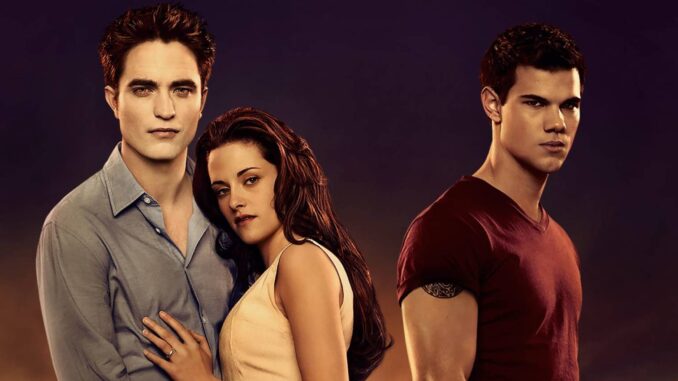
The Empty Chairs at the Cullen Table: When Nostalgia Meets the Inevitable “No”
The internet, a crucible of collective memory and instant gratification, recently rippled with a headline that struck a unique chord within the digital zeitgeist: “Netflix’s Twilight Reboot Officially Isn’t Bringing Back These Major Cullen Family Actors They Said No.” For fans who came of age amidst the shimmering allure of Forks, Washington, and the existential angst of Bella Swan, the news was less a mere casting update and more a seismic tremor beneath the foundations of a beloved cultural touchstone. It wasn’t just that the original actors wouldn’t return; it was the poignant detail that they said no. This wasn’t a studio decision to recast for freshness; it was a resounding rejection from the very faces that once defined the immortal, perpetually youthful family. And in that “no” lies a deeper narrative, illustrative of the delicate dance between nostalgia, artistic evolution, and the relentless churn of content in the streaming age.
Imagine, for a moment, the collective gasp of a generation. For many, the faces of Robert Pattinson, Kristen Stewart, Ashley Greene, Jackson Rathbone, Kellan Lutz, and Nikki Reed are the Cullens. Their portrayals, whether loved or lampooned, carved an indelible impression into the marble of pop culture. Pattinson’s brooding intensity as Edward, Stewart’s quiet vulnerability as Bella, Greene’s effervescent Alice – these weren’t just actors in roles; they were the architects of a cinematic universe that consumed countless hours and sparked fervent debates. A reboot, by its very nature, courts controversy. It’s a tightrope walk between honoring the source material and daring to reinvent. But the hope, however faint, for many fans was that at least a few familiar faces might grace the screen, perhaps in a cameo, a symbolic passing of the torch. The “they said no” extinguishes that glimmer, leaving behind a stark, empty canvas.
This rejection, however, is not an act of disdain, but often a testament to growth. For the actors themselves, the roles of the Cullens were a launching pad, a double-edged sword that brought immense fame but also the very real threat of typecasting. Robert Pattinson, for instance, has meticulously built a post-Twilight career defined by challenging, often avant-garde roles in independent cinema, before donning the cape as the latest iteration of Batman. Kristen Stewart has similarly garnered critical acclaim and an Oscar nomination for her nuanced work in films that are worlds away from vampire romance. To step back into the perpetually 17-year-old shoes of Edward Cullen, or the eternally cheerful Alice, would be to not just revisit a past, but perhaps to regress, to consciously re-don a skin they have painstakingly shed. It speaks to an artistic integrity, a desire to move forward rather than become a perpetual ghost in the machine of their most famous roles. Their “no” is an assertion of artistic autonomy, a declaration that their journey has led them far beyond the Forks high school cafeteria.
For Netflix, the decision to reboot Twilight without its original constellation of stars becomes an audacious gamble, but perhaps a necessary one. A clean slate, while disorienting for the existing fandom, offers creative liberation. It’s an opportunity to truly reimagine Stephenie Meyer’s universe, free from the inevitable comparisons that would plague any attempt to recreate the specific chemistry and visual style of the original films with the same cast. New actors mean new interpretations, new nuances, and potentially, a chance to shed some of the more divisive elements of the initial adaptations while embracing what made the books a phenomenon. It’s an attempt to capture a new generation, those who might have heard of Twilight but never sparkled with its initial magic, and to perhaps present a version that resonates with contemporary sensibilities.
Ultimately, the headline about the Cullen family actors saying “no” to the Netflix reboot is more than just a piece of casting news; it’s a profound illustration of the lifecycle of pop culture and the human relationship to memory. It highlights the potent allure of nostalgia, the inevitable march of time that transforms actors, and the strategic machinations of a streaming giant constantly seeking to resurrect and reinvent beloved IPs. The empty chairs at the Cullen dining table are not just vacant; they are symbolic. They represent the space where the past recedes, making room, however controversially, for a new future. For fans, it’s a bittersweet pill – the dream of a reunion is gone, but in its place, the promise, or perhaps the peril, of a Twilight reborn, a new dawn rising over the evergreen forests of our collective imagination, even if the familiar faces remain forever etched in our rearview mirror.
